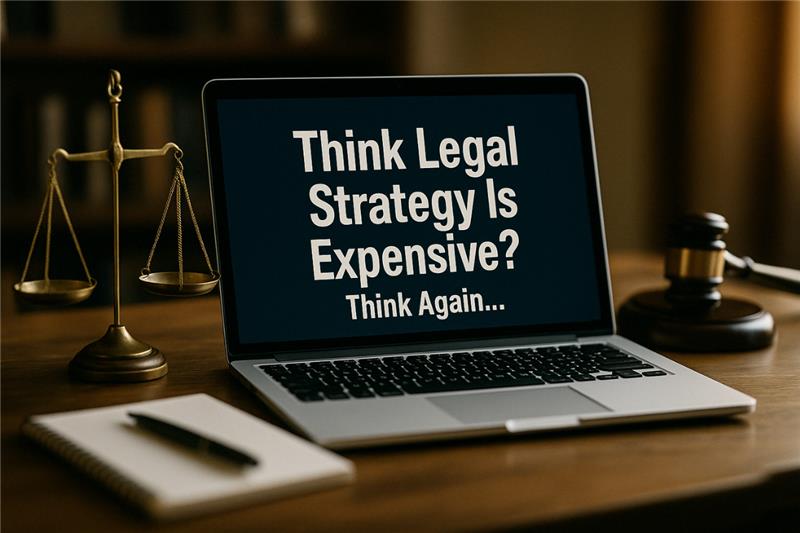How AI Is Reshaping Legal Strategy for Small Businesses
Using AI to speed up your business? Don’t forget the legal fine print. Artificial intelligence tools like ChatGPT, automated contract systems, and predictive analytics are becoming everyday resources for small businesses. They help streamline decisions, speed up operations, and reduce the need for large support teams. But while automation handles tasks, legal oversight is left behind. Business owners who embrace AI must also reexamine their legal strategies to manage risk, responsibility, and compliance in an evolving landscape. Without proactive planning, these tech tools can quietly introduce serious legal exposure.
The Hidden Legal Risks of Using AI in Business
The hidden legal risks of using AI in business include unrecognized exposure to data breaches, intellectual property conflicts, and liability for machine-generated decisions. For example, using a generative tool to produce website content might violate copyright laws if not properly structured. AI platforms also process massive volumes of customer data—yet few small business contracts address data privacy rules. If your vendor collects sensitive information through your AI system, you could be liable under international standards like the GDPR or U.S. consumer protection laws. These risks seem theoretical until a client complaint or data audit puts your business in legal jeopardy.
4 Common Pitfalls When Using AI Without Contracts
Using AI without legal contracts opens your business to risks that are easy to overlook but difficult to fix later. Many small businesses rush to adopt AI platforms without adjusting their legal language, assuming the technology will handle tasks without legal consequences. Skipping the contract step leaves massive gray areas in responsibility, compliance, and content ownership. Without agreements in place, simple tasks like generating a logo, analyzing customer data, or drafting an email can escalate into disputes or violations. To reduce these risks, it’s smart to contact attorneys before integrating AI into core business processes.
Below are four common pitfalls when using AI without contracts:
- Data Privacy Violations:
Improper handling of customer data through AI platforms can breach privacy laws such as GDPR or CCPA. If data storage or consent protocols are not spelled out in agreements, small businesses risk serious regulatory penalties. - Unclear Ownership of AI-Generated Work:
The ownership of content like logos, reports, or blog posts generated by AI remains legally gray unless clarified in contracts. Without stating terms of intellectual property, disputes over rights delay branding, fundraising, or partnerships. This makes it especially important to carefully choose fundraising software for nonprofits to avoid complications with shared content. - Liability for AI Mistakes:
AI tools that suggest pricing, HR decisions, or legal terms might get it wrong. If a decision based on AI causes financial or reputational harm, unclear contracts leave owners personally exposed to the consequences. - Jurisdiction Problems with Foreign Tools:
Many AI platforms are hosted overseas. Without contracts specifying jurisdiction, a legal dispute falls under foreign laws that disadvantage the business or complicate enforcement.
How AI Can Support Smarter Legal Strategies
AI can support smarter legal strategies by automating contract reviews, compliance tracking, and routine legal documentation. Tools like ChatGPT help draft internal policies or generate first drafts of contracts. Moreover, ChatGPT without signup makes it even easier for legal teams to quickly test ideas or get help with drafting tasks on the go. Other platforms use machine learning to highlight risky clauses, track changes, and alert teams to regulatory compliance deadlines. Some small businesses now use document generators for NDAs or employment offers, reducing turnaround time and lowering legal expenses. When deeper legal issues arise, they can still consult attorneys for guidance beyond what AI tools handle efficiently.
How to Legally Protect Your Business When Using AI
Business owners who use AI should put legal safeguards in place before issues arise. As reliance on AI tools grows, the chances of facing compliance audits, vendor disputes, or regulatory fines increase with it. A strong legal framework helps prevent these problems from spiraling into costly conflicts. Contracts must be written to reflect how AI systems work, who is accountable when they fail, and how data flows between tools. Taking action before problems emerge gives small businesses a significant advantage.
Below are ways to legally protect your business when using AI:
- Add Data Usage Clauses:
All AI-related contracts should include clear language about how data is collected, shared, and stored. This limits the chance of being caught in a privacy investigation due to a third party’s actions. - Clarify IP Ownership in Vendor Agreements:
Agreements with AI vendors must state who owns the content produced by the AI system. Without clear intellectual property rights, businesses lose control of branding or proprietary tools. - Limit Your Liability:
Contracts should cap damages, especially if AI errors create financial losses. Define responsibilities up front so your business doesn’t bear the full legal burden of AI-generated issues. - State Governing Law and Jurisdiction:
Contracts should clearly name which country’s laws apply to the agreement, especially if using SaaS tools hosted internationally. This avoids the cost and confusion of litigating under foreign legal systems.
Final Thoughts
Technology is a growth enabler, but unaddressed legal risks derail that growth. Working with legal professionals ensures your AI use aligns with business protection, not just speed and convenience. With smart agreements in place, small business owners learn to adopt AI tools confidently, knowing their contracts are as forward-looking as their technology.

Leave a Reply